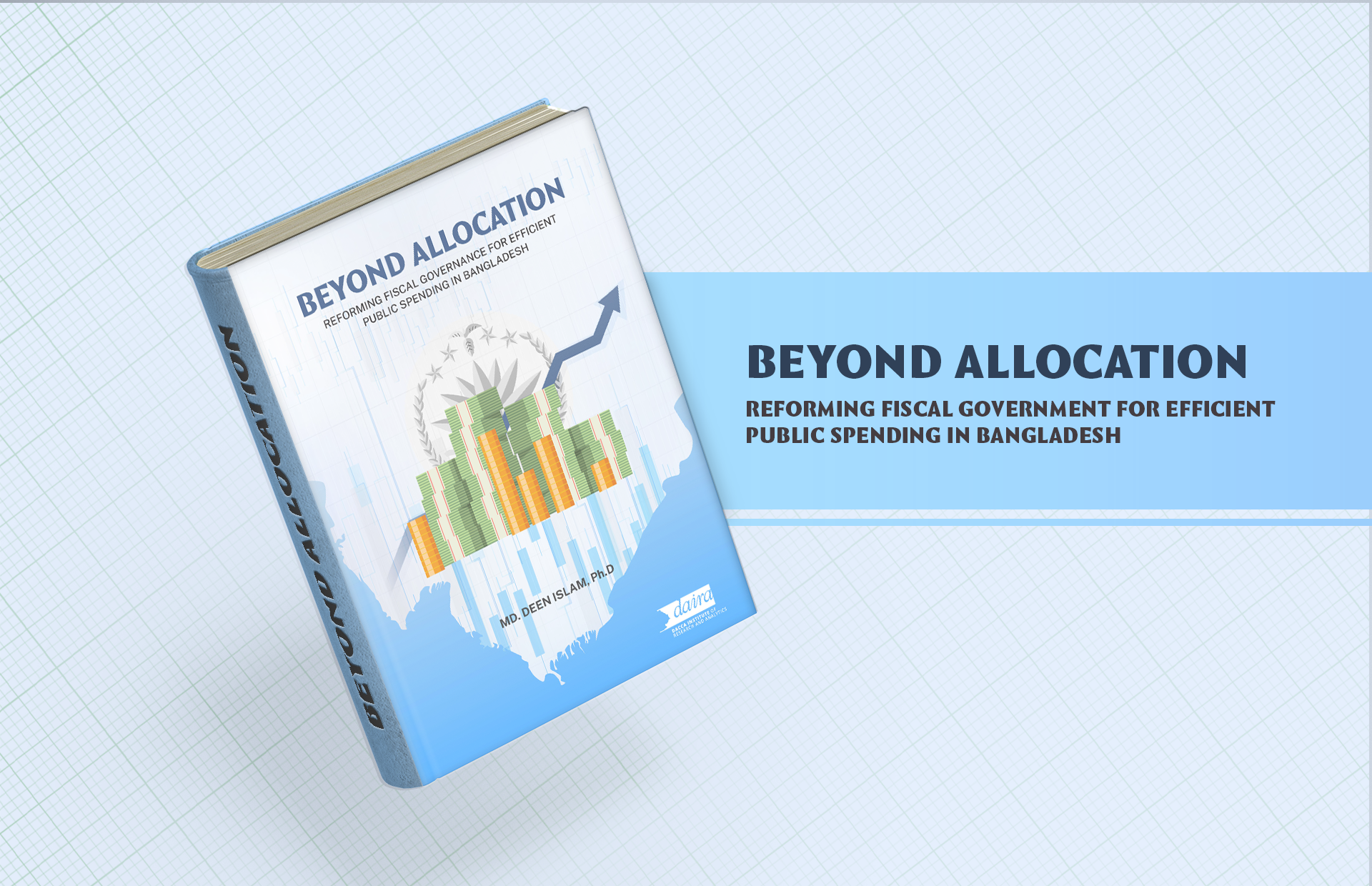Beyond Allocation: Reforming Fiscal Governance for Efficient Public Spending in Bangladesh
Md. Deen Islam’s article, Beyond Allocation: Reforming Fiscal Governance for Efficient Public Spending in Bangladesh, critically examines the structural inefficiencies and governance deficits undermining Bangladesh’s fiscal policy, particularly in the context of the FY2025–26 budget. Despite a budget size of Tk 7.9 trillion, the paper argues that Bangladesh’s capacity to meet development goals is severely constrained by a narrow fiscal space, weak revenue generation (tax-to-GDP ratio below 10%), and escalating debt servicing costs.
The article identifies core inefficiencies in both the revenue and development budgets. Operational spending is disproportionately skewed toward salaries and redundant infrastructure, while the Annual Development Programme (ADP) suffers from poor execution, rampant corruption, and a “last-quarter syndrome” that fosters rushed and inefficient disbursement. Mega-projects, though politically symbolic, often lack proper cost-benefit evaluations and are vulnerable to delays and mismanagement.
Islam attributes these challenges to systemic issues: entrenched corruption, weak value-for-money (VfM) oversight, and historically deficient procurement systems. However, the paper highlights recent improvements through digital reforms, notably the electronic Government Procurement (e-GP) platform, which has increased transparency, reduced costs, and enhanced public accountability. Complementary initiatives like citizen monitoring and grievance redressal systems have further strengthened procurement oversight.
The author proposes a reform agenda grounded in institutional accountability and digital governance. Key recommendations include: institutionalising VfM audits, expanding e-GP coverage, rationalising salary and maintenance spending, empowering anti-corruption institutions, and establishing a medium-term fiscal reform pathway to improve tax compliance and reduce debt dependency.
Ultimately, the article underscores that the solution to Bangladesh’s fiscal crisis lies not in increasing allocations, but in improving the quality of spending. It calls for a paradigm shift from volume-based budgeting to outcome-oriented governance—anchored in transparency, efficiency, and inclusive development. Without such reforms, Bangladesh risks perpetuating fiscal inefficiencies that undermine both growth and public trust.


